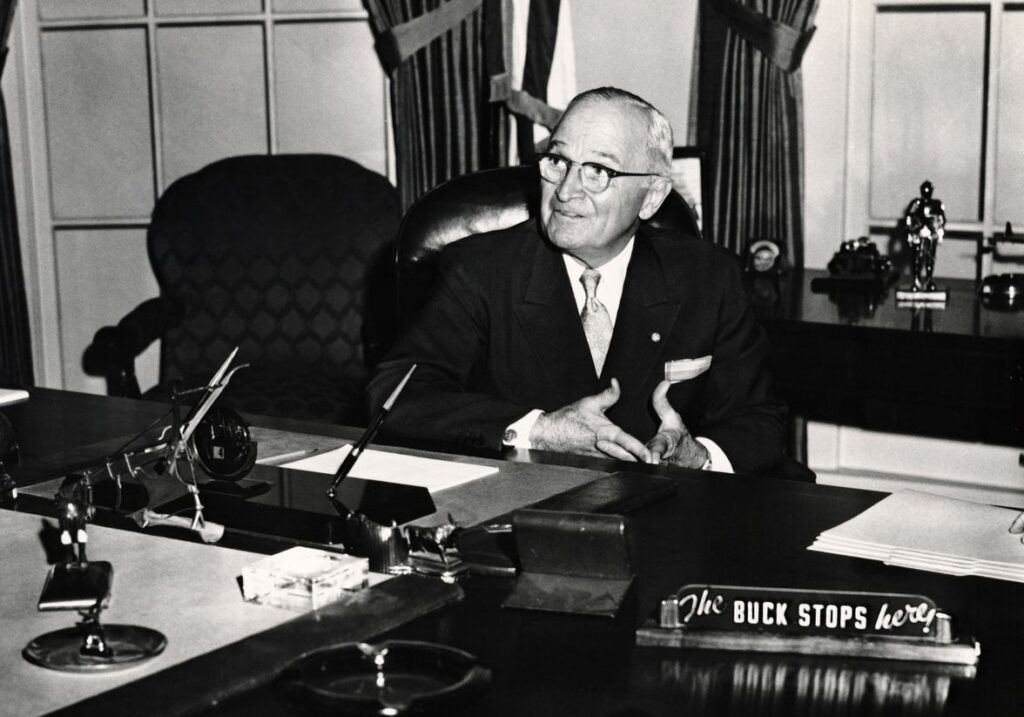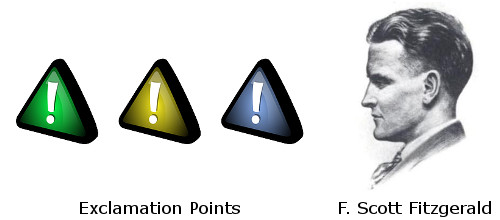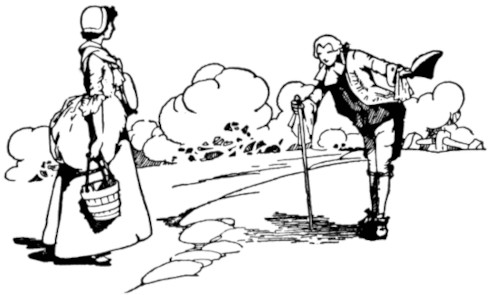Harry Truman? A. B. Warfield? Spencer Z. Hilliard? Clifford M. Alexander? Lester C. Hunt? Anonymous?

Question for Quote Investigator: The phrase “pass the buck” refers to shifting responsibility from one person to another. U.S. President Harry Truman had a sign on his desk in the White House that famously stated:
The Buck Stops Here
Thus, Truman expressed a willingness to assume the ultimate responsibility for the executive decisions made during his administration. I do not think Truman coined this expression. Would you please explore its provenance?
Reply from Quote Investigator: The earliest match known to QI appeared in October 1929 within a column published in “The Lincoln Evening Journal” of Lincoln, Nebraska. The motto appeared on a sign at the desk of an unnamed U.S. military officer. The slang term “looey” in the following passage corresponded to a lieutenant. The three ellipses appeared in the original text. Boldface added to excerpts by QI:1
Capt. Joe Lehman tells a story that Jug should bear. . . . It’s about the second lieutenant in the war department whose desk was back in the corner among the boxes and barrels. . . . Above this desk the second looey had placed a card which read: “The buck stops here” . . . and he didn’t mean buck private.
Thus, the motto was circulating in the U.S. military by 1929, and the creator remains anonymous.
Here are additional selected citations in chronological order.
Continue reading “Motto Origin: The Buck Stops Here”


